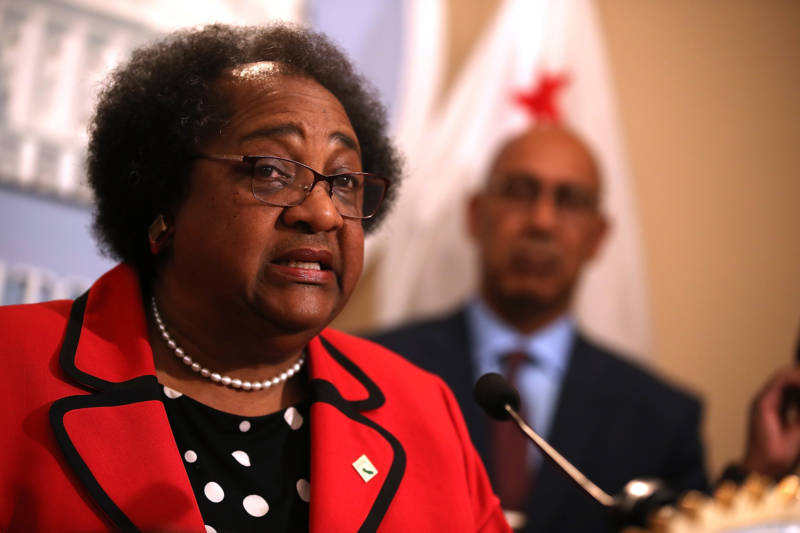Assemblywoman Shirley Weber: My goal is to continue opening up the process, making sure that we have access to voting in a variety of ways. The last election was a good example of the fact that people not only had the opportunity to vote by mail, but they could vote in person, they could vote early, all those kinds of things.
In this environment we're finding ourselves under attack in terms of voting, sometimes without good rationale. There's a lot of folks — and not always in California but across the nation — that are throwing things at voting and then discovering that there's nothing out of the ordinary. I think it's extremely important to make sure that we're transparent, that we restore people's confidence in our voting system, but also make it accessible and open to everyone. And so we want to continue those efforts in my administration.
In order to avoid crowding at the polls during the pandemic, California mailed every voter a ballot. Do you support making that change permanent?
I do support that and the Legislature may as well. It is an option that's available that people can take advantage of and it worked well, I think, in California this last time. I do support making it a permanent fixture of California's options available to voters.
In many ways, the pandemic accelerated California’s shift under the Voter's Choice Act, with many counties opting for larger countywide vote centers instead of traditional assigned polling places. Will you encourage more counties to take that step?
The pandemic did push us in a lot of areas and a lot of ways that would have taken us longer to come to. I think we would have arrived there, but it would have been a slower process.
But it has pushed us, it has pushed us to try some new things and not only in voting but probably in every aspect of our lives. I mean, most of us didn't even know what Zoom was and now we've discovered that.
What do you see as the future of in-person voting in California?
I think in-person voting will continue to exist. I think we're going to see the shift where it's going to become a lot less [used].
